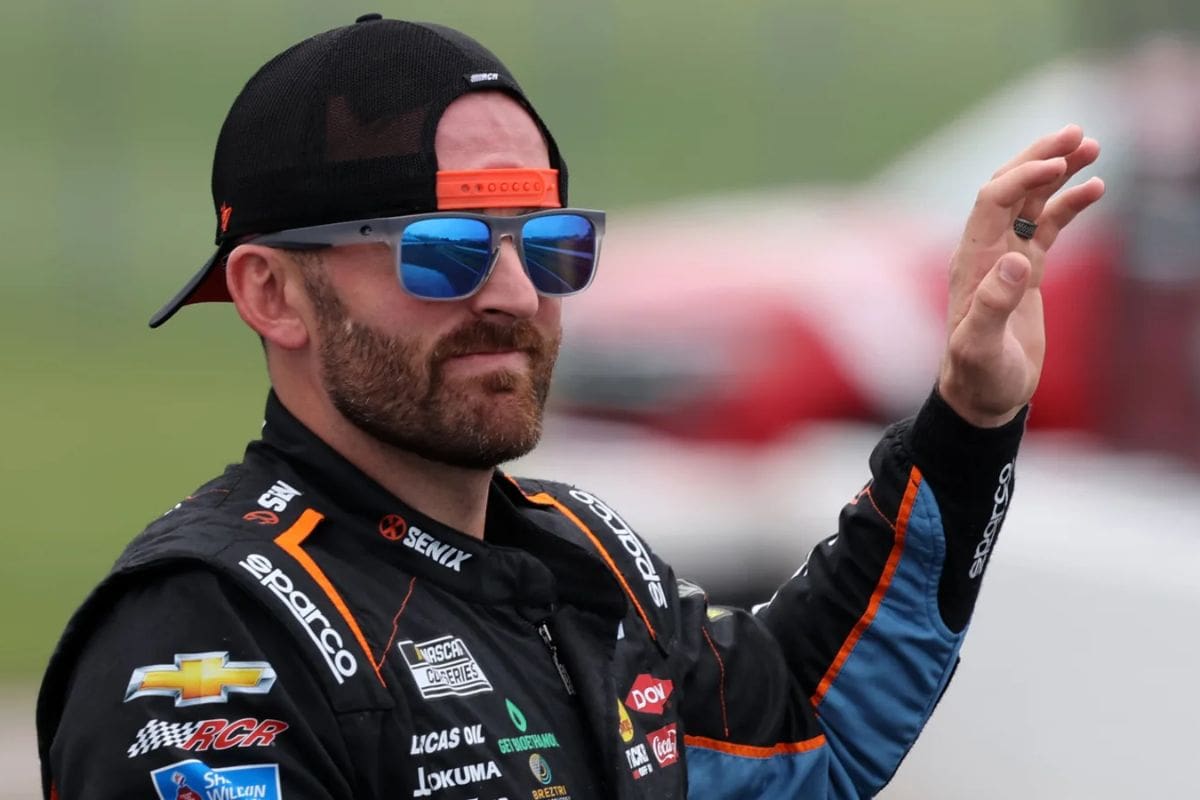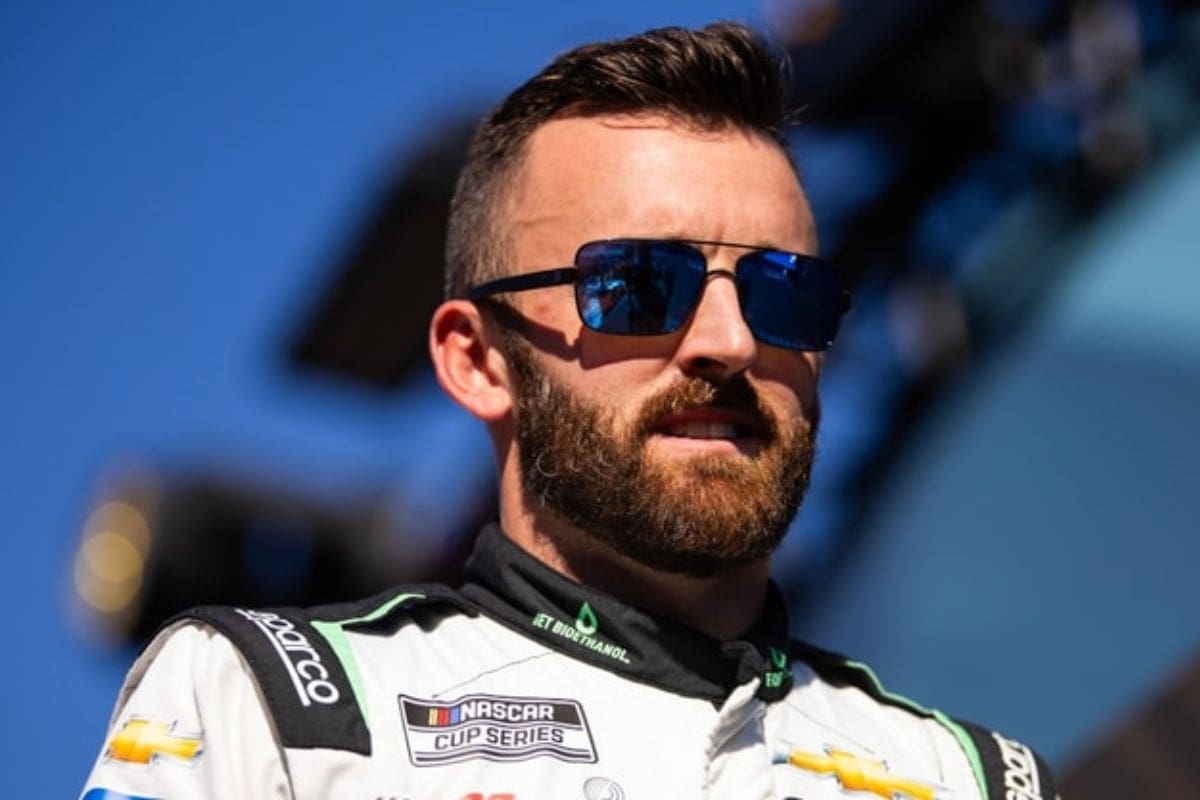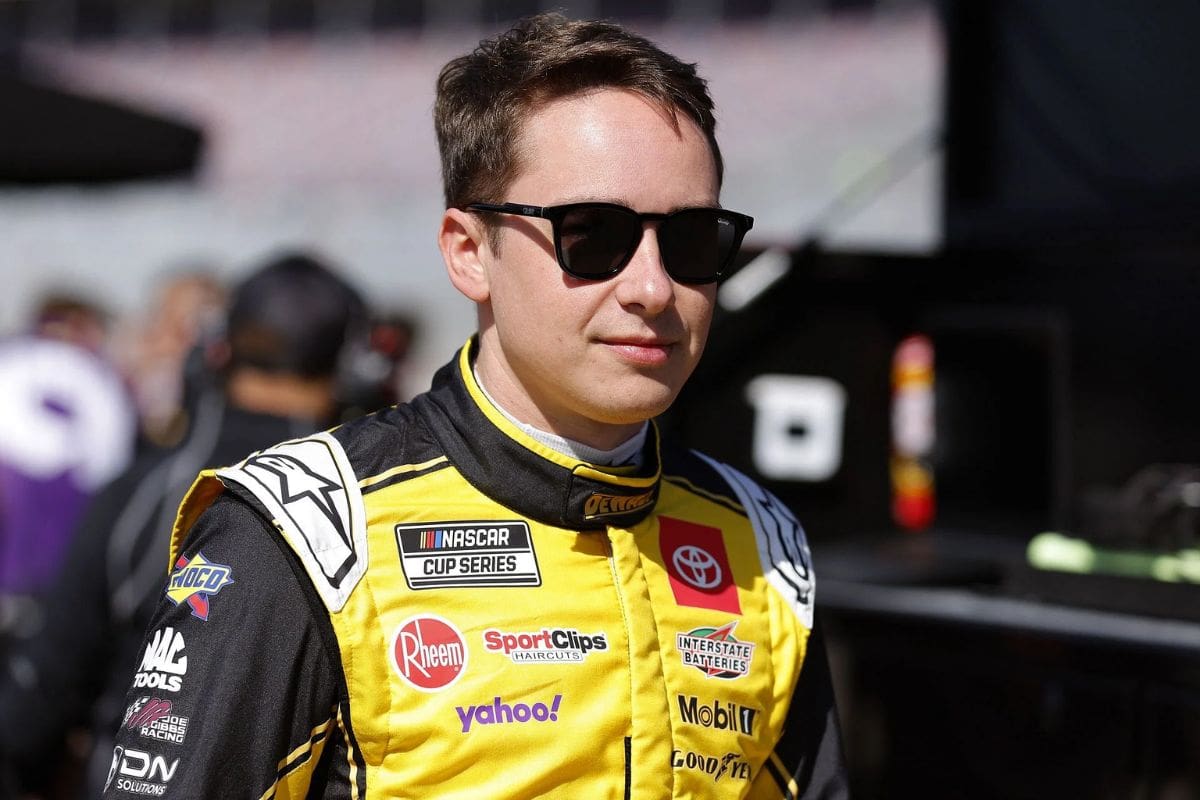Christopher Bell Clears Austin Dillon of Dirty Winner Label: In the wake of the controversial incident at Watkins Glen, Christopher Bell‘s defense of Austin Dillon against the ‘dirty winner’ label raises critical questions about accountability and the subtleties of racing. Bell’s acknowledgment of his own involvement, coupled with a call for improved sportsmanship among competitors, invites a deeper examination of how racing dynamics influence perceptions of fairness and integrity. As the narrative unfolds, one must consider whether this incident signifies a broader shift in the racing culture or merely reflects the complexities of human error on the track. What implications might this have for future races?
Key Highlights
- Christopher Bell acknowledged his role in the Watkins Glen incident, emphasizing the importance of accountability in racing.
- Despite the collision with Dillon, Bell refrained from labeling him as a ‘dirty winner,’ advocating for a broader perspective on race dynamics.
- Dillon’s aggressive driving style has garnered criticism from fans and analysts, adding complexity to the narrative surrounding his racing reputation.
- Bell’s comments highlight the significance of sportsmanship and respect in competitive racing, even amidst contentious incidents.
- The ongoing discussions about driver conduct and accountability are essential for maintaining the integrity of NASCAR and its racing culture.
Austin Dillon’s Reputation Takes Another Hit After Watkins Glen Incident
Austin Dillon’s recent encounter at Watkins Glen has further tarnished his reputation in the competitive world of NASCAR. The dramatic collision with Christopher Bell during the 2024 Go Bowling at The Glen has reignited discussions about Dillon’s aggressive driving style, which has long been a point of dispute among fans and analysts similarly. The incident occurred on Lap 62, when Dillon collided with the rear of Bell’s No. 20 Toyota Camry, causing an unfortunate spin that ultimately impacted Bell’s race outcome.
Despite the implications of this incident, it is essential to recognize the complexity of race dynamics. Bell, currently leading the Cup Series standings, publicly absolved Dillon of blame, attributing the mishap to miscommunication rather than malicious intent. This intricate perspective illuminates the multifaceted nature of racing, where split-second decisions can lead to unintended consequences.
However, Dillon’s aggressive tactics at important moments have continued to shape perceptions of his character on the track. The fallout from the Watkins Glen incident raises questions about Dillon’s approach to racing and his ability to balance competitiveness with caution.
As he navigates the challenges of the NASCAR circuit, the scrutiny of his actions will persist. For Dillon, the path to redemption may require not only improved driving strategies but also a concerted effort to reshape his public persona.
In an environment where reputation is dominant , the consequences of such incidents can be profound, emphasizing the need for drivers to maintain a delicate equilibrium between aggression and responsibility.
Christopher Bell Takes Responsibility for his actions
Christopher Bell’s open acknowledgment of his role in the Watkins Glen incident exemplifies the humility and accountability that often define successful athletes. This incident, which had implications for his race outcome, served as a critical moment in Bell’s season, highlighting both the demands of competitive racing and the importance of personal responsibility.
Despite Bell’s impressive path—having reached the Championship 4 last year and currently positioned well above the playoff cutline—his admission that he mishandled the situation at Watkins Glen speaks volumes about his character.
“You know, my incident at Watkins Glen was honestly a mistake on my part. I got called to pit road late and didn’t do a good job of getting myself in position to come to pit road. I just don’t think Austin saw my hand signal getting into 7th and then he thought we were still contesting for the position. Bristol could be more of the same for sure, once you understand people are going to be pitting, giving them a little more leeway and stuff. I think if everyone communicates on track, there will be no issues,” -(bob)
Christopher Bell said his team made a late call for him to come to pit road so Austin Dillon wasn't aware he was slowing to pit at Watkins Glen. Bell isn't expecting similar issues at Bristol as drivers typically are aware when someone is pitting. pic.twitter.com/9yW0foiGgZ
— Bob Pockrass (@bobpockrass) September 18, 2024
While the incident may have unknowingly affected his standings, Bell’s willingness to take responsibility mitigates the narrative surrounding the controversy. By clearing Austin Dillon of any ‘dirty winner’ label, he shifted the focus back onto his own performance, emphasizing that mistakes are part of the game.
In a sport where split-second decisions can determine outcomes, Bell’s insight may serve as a lesson for his peers. Ultimately, his admission reinforces the notion that growth and excellence in racing—much like in life—are often forged in the crucible of accountability.
Austin Dillon Faces Backlash Despite Bell’s Admission
Despite Christopher Bell’s frank admission of his own missteps at Watkins Glen, the fallout for Austin Dillon has been considerable, revealing the complexities of accountability in competitive racing. The NASCAR community’s response highlights the ongoing scrutiny that drivers face, particularly those with a history of controversial actions. Dillon’s past incidents, particularly the last-lap wreck involving Joey Logano and Denny Hamlin at Richmond Raceway, have contributed to a narrative that paints him in a negative light, despite Bell’s defense.
The complexities of racing dynamics were further highlighted by Bell’s commentary on the need for better communication among drivers. His acknowledgment of misjudgment raises questions about the sport’s culture, where accountability can often be clouded by the narrative shaped by previous actions. While Bell’s insights may provide some clarity, they do little to assuage the backlash Dillon faces. As the sport prepares for future races, particularly with Bristol on the horizon, the interplay between reputation, accountability, and driver interaction will remain critical in shaping public perception and team dynamics.
Christopher Bell Eyes Redemption at Bristol Motor Speedway
Aiming for redemption, Bell approaches the Bristol Motor Speedway with a renewed resolve to solidify his position in the NASCAR playoffs. The upcoming 2024 Bass Pro Shops Night Race presents a vital opportunity for the Joe Gibbs Racing driver, one that could markedly influence his championship aspirations.
Despite his relatively secure standing in the Round of 12, Bell understands that playoff points are essential in the battle for the coveted title. Bristol’s unique short-track characteristics demand precision driving and tactical insight, making it an ideal setting for Bell to demonstrate his skills.
With the postseason’s fine margins in mind, he recognizes that each race is an opportunity to accumulate points that could prove invaluable as he aims for a shot at the championship trophy at Phoenix Raceway. Bell’s focus on driving cleanly is paramount; avoiding incidents is necessary not only for his own performance but also for preserving the integrity of his playoff campaign.
The lessons learned from recent races, particularly the need to navigate challenges without succumbing to reckless tendencies, will be a focal point for Bell. His ability to harness this understanding at Bristol could be the key to revealing a victory that not only amplifies his confidence but also elevates his position in the standings.
As he prepares for this critical race, Bell is fully aware that redemption is not merely a desire—it’s a necessity in his pursuit of NASCAR greatness.
Bell and Other Drivers Criticize Next-Gen Car for Lowering Driver Standards
The introduction of the Next-Gen car in NASCAR has sparked a heated debate among drivers about the erosion of racing standards and respect on the track. Following the 2024 Go Bowling at The Glen, Christopher Bell and his teammates, Martin Truex Jr. and Denny Hamlin, expressed their concerns regarding a noticeable decline in driver etiquette.
Truex Jr., despite a strong qualifying performance, experienced a frustrating race after being involved in an incident with Kyle Larson, leading him to criticize the lack of thoughtfulness among competitors.
“The biggest thing that I have noticed as far as respect on the track and etiquette is that it really changed, probably, midway through the 2022 season. The NextGen car came out and it, as we started to run it, we drivers learned how durable it is. You’re able to get away with contact and not damage your car and hinder your own race. It has definitely enticed people, especially on road courses, to make sure you’re the one on offense and not defense.”-(bell)
Bell echoed these sentiments, attributing the shift in behavior to the robustness of the Next-Gen car. He argued that the car’s durability has emboldened drivers to engage in more aggressive tactics without fear of considerable repercussions. This shift in mentality, he claims, particularly manifests on road courses where the emphasis has shifted from defensive driving to offensive strategies.
The rationale behind NASCAR’s focus on safety is commendable, as evidenced by incidents like Ross Chastain’s wall collision at Martinsville or the clash between William Byron and Brad Keselowski at Watkins Glen. Both drivers emerged largely unscathed, allowing them to continue racing.
However, this resilience raises critical questions about accountability. If drivers perceive that they can act recklessly without consequence, the integrity of the sport could be compromised.
To restore respect and accountability, NASCAR may need to rethink adjustments to the design and regulations governing the Next-Gen car, fostering a culture where driver responsibility is paramount.
News in Brief: Christopher Bell Clears Austin Dillon of Dirty Winner Label
The discourse surrounding the Watkins Glen incident highlights the complexities of racing dynamics and the necessity for a subtle understanding of competitive behavior. Christopher Bell’s acknowledgment of mutual accountability serves as a catalyst for fostering a culture of sportsmanship, challenging the prevailing narratives of blame. As the racing community grapples with the implications of aggressive tactics and vehicle performance, a collective reevaluation of standards and respect among competitors emerges as crucial for the sport’s integrity and future development.



